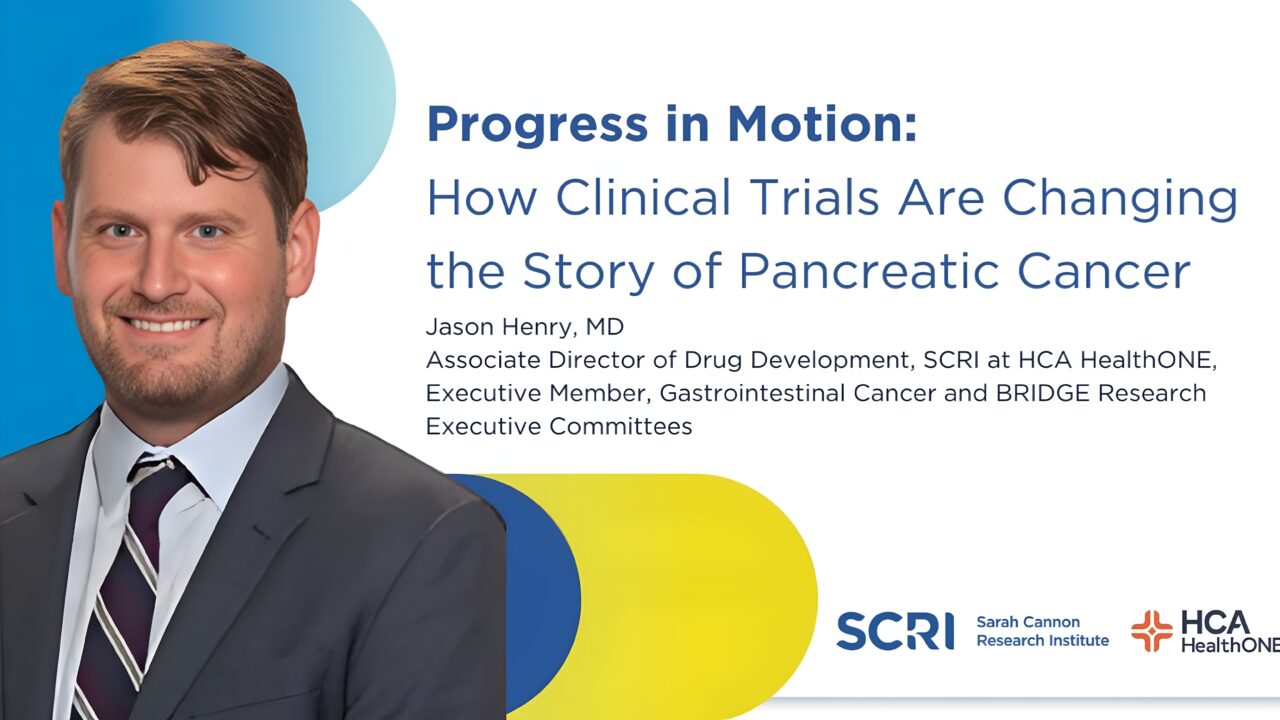Jason Henry, Associate Director – Drug Development at Sarah Cannon Research Institute, shared a post on LinkedIn:
“Progress in Motion: How Clinical Trials Are Changing the Story of Pancreatic Cancer
When I first set out on my career path, I was a sociology major—interested in understanding people and how their lives are shaped by the communities they live in and the access they have. My senior project led me to a cardiology research group, where I interviewed patients who lived hours away from specialized care. These were people who, after having a heart attack, were urgently transported to the city for life-saving procedures that weren’t available where they lived.
It was in those moments that I saw how access and innovation can change lives. The research wasn’t about brand-new technology; rather, it was about applying existing tools in new ways to reach more people. In that study, mortality rates from the most severe type of heart attack dropped by more than 50% across the state of Minnesota. I saw the real, tangible impact research can have, and I was deeply inspired to be part of that change.
That experience set me on the road to medicine, and ultimately, oncology. I wanted to dedicate my career to a field that would never stand still, one where discovery, perseverance, and patient-centered care intersect every single day.
When I looked across oncology, gastrointestinal cancers stood out as an area with the greatest opportunity to make an impact. They represent some of the most complex and challenging diseases we face. Pancreatic cancer, in particular, remains one of the most difficult to detect and treat — and that challenge drew me in.
Like most oncologists, I carry the stories of many patients with me. Some because of what they teach you, and others because of the progress they make. One still stands out to this day: a patient with pancreatic cancer who joined a clinical trial we were running through our drug development unit, Sarah Cannon Research Institute (SCRI) at HCA HealthONE.
When I first met him, his quality of life was poor. But with courage and hope, he decided to participate in the trial. Months later, he shared a photo of himself in the same outfit and the same setting, but this time at a much healthier weight, stronger, and smiling. He was back to visiting his kids, working out daily, and even went elk hunting.
That’s what clinical research makes possible: giving patients back moments of their lives they thought they’d lost.
Pancreatic cancer is among the most difficult cancers to diagnose and treat. It’s often asymptomatic in its early stages or presents vague signs (mild back pain, subtle weight loss, fatigue) that are easy to overlook. By the time symptoms appear, the disease is often advanced.
Unlike a mammogram for breast cancer or a colonoscopy for colon cancer, there’s currently no effective screening test for pancreatic cancer. That’s something many in the research community, including our team at SCRI, are working to change.
We’re at an exciting and hopeful time in pancreatic cancer research. While progress is often incremental, those achievements add up. Advances in early detection, new surgical and radiation techniques, and vaccines designed to delay recurrence are giving patients and families new reasons for hope.
At SCRI, our focus includes identifying and testing novel therapies for patients whose disease isn’t curable and developing treatments that extend life while maintaining quality of life. We’re studying targeted therapies against genetic mutations like KRAS and MTAP, which are showing promising results in early trials. The ultimate goal is to move from treatment to prevention—and ultimately, cure.
Every day, I’m reminded that progress doesn’t happen in isolation. It takes collaboration across physicians, researchers, and clinical teams — and the courage of patients who participate in clinical trials not just for themselves, but for those who will follow.
As we observe Pancreatic Cancer Awareness Month this November, my message is simple: our “why” is you. Every study we design, every patient we treat, and every conversation we have about improving access or outcomes is rooted in that purpose.
And for every patient and family touched by pancreatic cancer, know that we’re working tirelessly to make tomorrow better than today.
Because every good day counts.”


